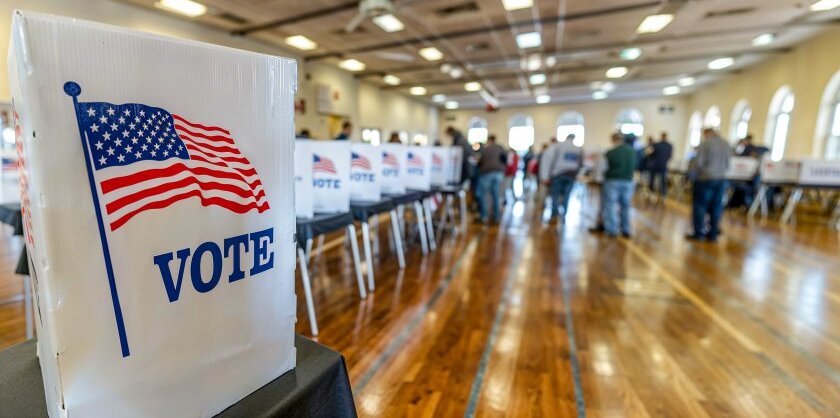What’s happened in Wyoming illustrates how closed primary elections shut too many voters out of the electoral process, intensify political polarization and raise important questions about funding these elections.
Lancaster County election officials reported that thousands of mail-in ballots sent to voters last week were printed with an error, requiring them to be voided and replaced. Already, 15,000 ballots have been recovered.
None of the 17 candidates on the April 4 ballot received more than 50 percent of the vote, triggering a runoff election on June 6. Advocates argue that ranked-choice voting would make the process quicker and more streamlined.
Voter turnout is lower in rural places, something researchers say is a symptom of unequal amounts of civic infrastructure.
Jay Ashcroft was elected secretary of state in 2016 and re-elected in 2020. He has assured the state’s elections are safe and secure while also uplifting and supporting conspiracy theories about voter fraud.
For many years, Latinas in the U.S. have voted at higher rates than men. But in 2020, more than 2.7 million eligible Latina citizens were not registered. Poder Latinx hopes to bolster Latina power and women’s political presence.
New Mexico and Minnesota are the two most recent states to allow people previously convicted of felonies to vote upon leaving prison, following 21 other states. Ten more states are considering similar legislation.
Millennial and Gen Z Americans will be the majority of the electorate in 2028. But predicting which party will benefit will be challenging. These young voters care more about policy than party, according to experts.
Nearly 10 percent of the state can’t participate in elections because they have been convicted of a felony. Restoring the right to vote to those who have completed their time is complicated and frustrating, advocates say.
A cloud of misinformation has led a half-dozen states to abandon the most powerful tool available to combat voter fraud across state lines.
Newcomers from liberal states don’t always tilt their new homes to the left. It’s the reason why migration politics is more complex than people give it credit for.
An alliance of state lawmakers deserves credit for a collective effort to fight disenfranchisement of minority and Democratic voters. But they will need a lot more support to win the fight to protect the sacred right to vote.
The state will continue to participate in the multistate voting registration system known as ERIC, even as other Republican-led states have pulled out amid misinformation and conspiracy theories.
The vote will determine whether Madison, Ala., should transition from a mayor-council format to a council-manager format, which is unusual for the state. If approved, the city will have until 2025 to make the transition.
The state is among a handful of Republican-leaning states that have pulled out of the national system designed to improve voting roll accuracy known as ERIC. Many are skeptical that Missouri’s next efforts will be as efficient.
Before 2020, they seldom voted against certifying results. But in 2022, conservative officials in North Carolina, Arizona, Nevada, Pennsylvania and New Mexico refused to do so.
Most Read


















